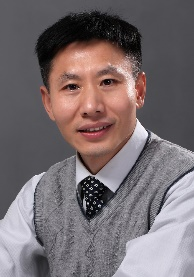
|
E-mail: qingguoliang@whu.edu.cn Website:
|
Biography
Guoliang Qing, PhD is the Professor of Medical Research Institute of Wuhan University.
He received his bachelor's degree in biology from Nanjing University and completed a PhD in molecular genetics at Rutgers, the State University of New Jersey in 2006. He conducted postdoctoral research with Celeste Simon at University of Penn School of Medicine and Howard Hughes Medical Institute (HHMI). Dr. Qing became the Professor of Pharmacology at Huazhong University of Science & Technology in 2011.
In 2016, Dr. Qing moved to Wuhan University School of Medicine and was one of the founding laboratories of the newly formed Medical Research Institute there. He was promoted to level-2 full Professor in 2020. In 2022, he became the joint faculty member of the Taikang Center for Life and Medical Sciences at Wuhan University.
Research
Deregulated metabolism is an essential feature of malignant transformation. To support their relentless cell division, most cancer cells have to evolve specific metabolic adaptations that promote their survival under conditions that kill normal counterparts; this adaptation process has been termed “metabolic reprogramming”. Multiple regulatory mechanisms, either intrinsic or extrinsic, converge to alter core cellular metabolism and provide support for the increased demands of proliferating cancer cells: rapid ATP generation to maintain energy status, increased production of anabolic intermediates for macromolecule biosynthesis, and appropriate maintenance of redox homeostasis to reduce the impact of cellular reactive oxygen species. Qing lab focuses on mechanistic investigation of cancer cell metabolism and its application in drug development for cancer treatment.
Representative Publications
Donghai Wang, Zhinan Yin, Honghong Wang, Liyuan Wang, Tao Li, Ruijing Xiao, Ting Xie, Ruyi Han, Rui Dong, Hudan Liu, Kaiwei Liang, Guoliang Qing. The super elongation complex drives transcriptional addiction in MYCN-amplified neuroblastoma. Science Advances, 2023, 9(13): eadf0005.
Liyuan Wang, Chan Chen, Zeming Song, Honghong Wang, Minghui Ye, Dongghai Wang, Wenqian Kang, Hudan Liu, Guoliang Qing. EZH2 depletion potentiates MYC degradation inhibiting neuroblastoma and small cell carcinoma tumor formation. Nature Communications, 2022, 13(1):12.
Yang Dong, Rongfu Tu, Hudan Liu, Guoliang Qing. Regulation of cancer cell metabolism: oncogenic MYC in the driver's seat. Signal Transduction & Targeted Therapy, 2020, 5: 124.
Chen H, Liu H, Qing G. Targeting oncogenic Myc as a strategy for cancer treatment. Signal Transduction & Targeted Therapy, 2018, 3: 5.
Daibiao Xiao, Ming Yue, Hexiu Su, Ping Ren, Jue Jiang, Feng Li, Yufeng Hu, Haining Du, Hudan Liu, Guoliang Qing. Polo-like Kinase-1 Regulates Myc Stabilization and Activates a Feed-Forward Circuit Promoting Tumor Cell Survival. Molecular Cell, 2016.11.3, 64(3): 493-506.